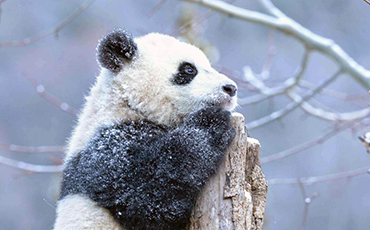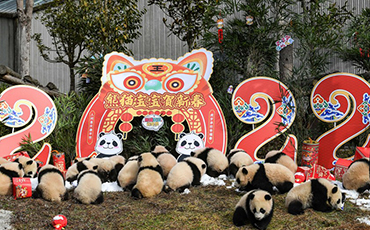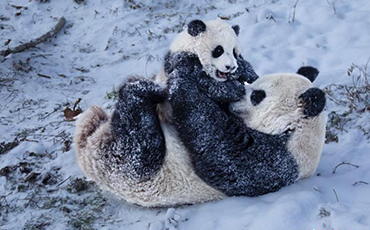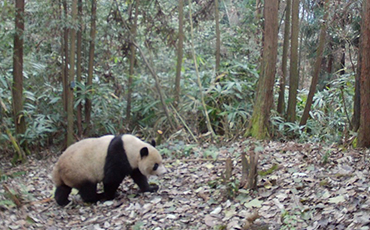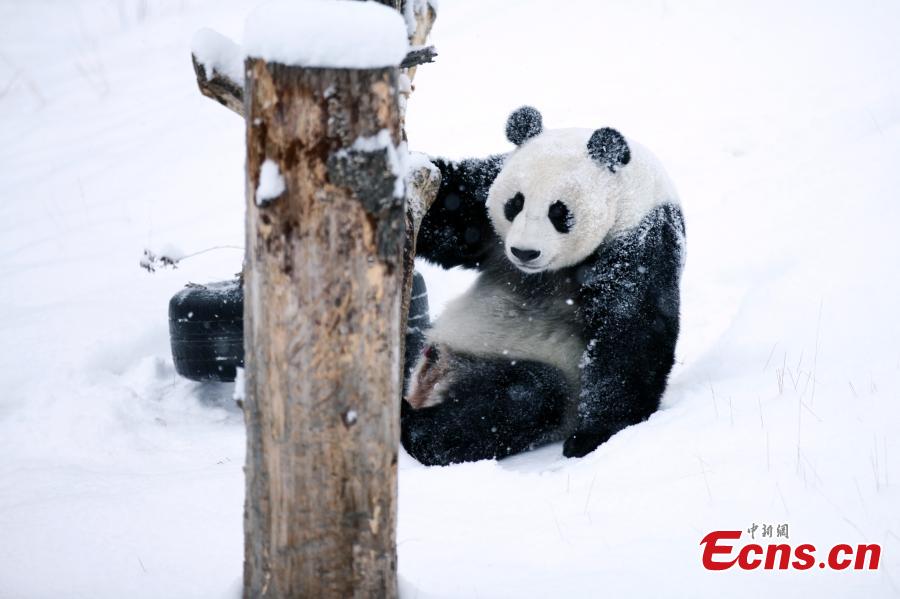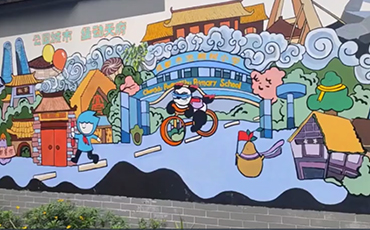Revival of the "white bear tribe"
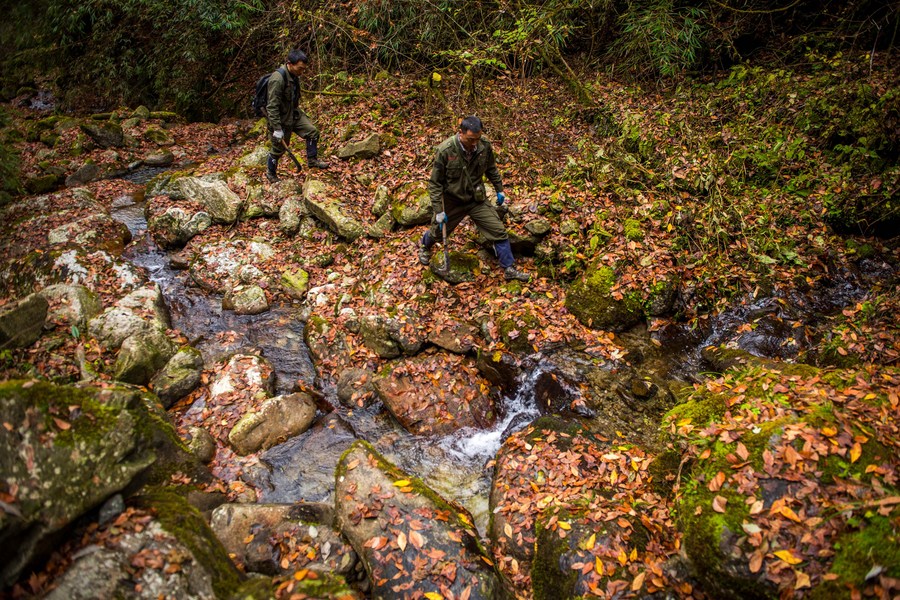 Photo taken on Nov.15,2017 shows that a rangers'squad from Guanba Village in southwest China's Sichuan Province is patrolling the forest.(Photo provided to Xinhua)
Photo taken on Nov.15,2017 shows that a rangers'squad from Guanba Village in southwest China's Sichuan Province is patrolling the forest.(Photo provided to Xinhua)
CHENGDU,Dec.10(Xinhua)--Qiao Liang,Party chief of Guanba Village in southwest China's Sichuan Province,was thrilled that an infrared camera had once again captured the image of a"white bear,"a name locals commonly use for pandas.
Pandas have long been a signature animal in the history of the village.As early as 1845,local documents had recorded the sighting of"white bears,"subsequently earning the village the nickname"white bear tribe."
However,for a period stretching back decades,ecological balance and biodiversity in the area were severely endangered,due to rampant hunting and logging,the main sources of income for locals.
"At that time,every household had hunting guns,"said villager Meng Ji."With more villagers becoming hunters,the wildlife population decreased dramatically."
Another villager,Gao Mingbin,can still recall how locals recklessly reclaimed forests for farmland when he was a child.
"They virtually cut down whatever trees they saw,"Gao said."They burned the land out without fertilizing it and hastily planted crops such as corn,wheat and potatoes."
This style of farming caused the land to lose its fertility within three years,upsetting the local ecology.
As China gradually switched to a more sustainable way of development,villagers in Guanba also began to seek ways to develop the local economy without posing a threat to the environment.
With its minimal impact on the environment,beekeeping emerged as the primary industry of the village.The village launched a beekeeping cooperative in 2010 and had its honey certified organic.
"With the improved environment,more flowers blossomed.The honey produced per beehive increased from 4 kg to 10 kg,"said beekeeper Li Xinghui."Moreover,organic honey can sell for 10 to 15 yuan(about 1.57 to 2.36 U.S.dollars)more per kg than ordinary honey."
Many villagers benefited from the booming beekeeping industry,with 23 households alleviated from poverty and the annual income for some successful beekeepers topping 40,000 yuan.
Five years ago,Qiao led villagers in formulating a five-year plan for the village's green development,forbidding hunting,herb gathering and electric fishing,among other activities that threaten the ecology.
Villagers also identified nearly two dozen ecological threats to the environment that needed to be addressed and voluntarily formed a rangers'squad to protect the ecology.
Today,solar power provides over one-third of the village's energy,greatly reducing the use of firewood.Over 30 species of wild animals have been captured on camera in the area.
The success of the"white bear tribe"in balancing development and ecological conservation has also drawn international attention.
At a forum during the 15th meeting of the Conference of the Parties to the Convention on Biological Diversity(COP15)in Kunming this year,Guanba Village was listed as an exemplary case for promoting biodiversity.■
